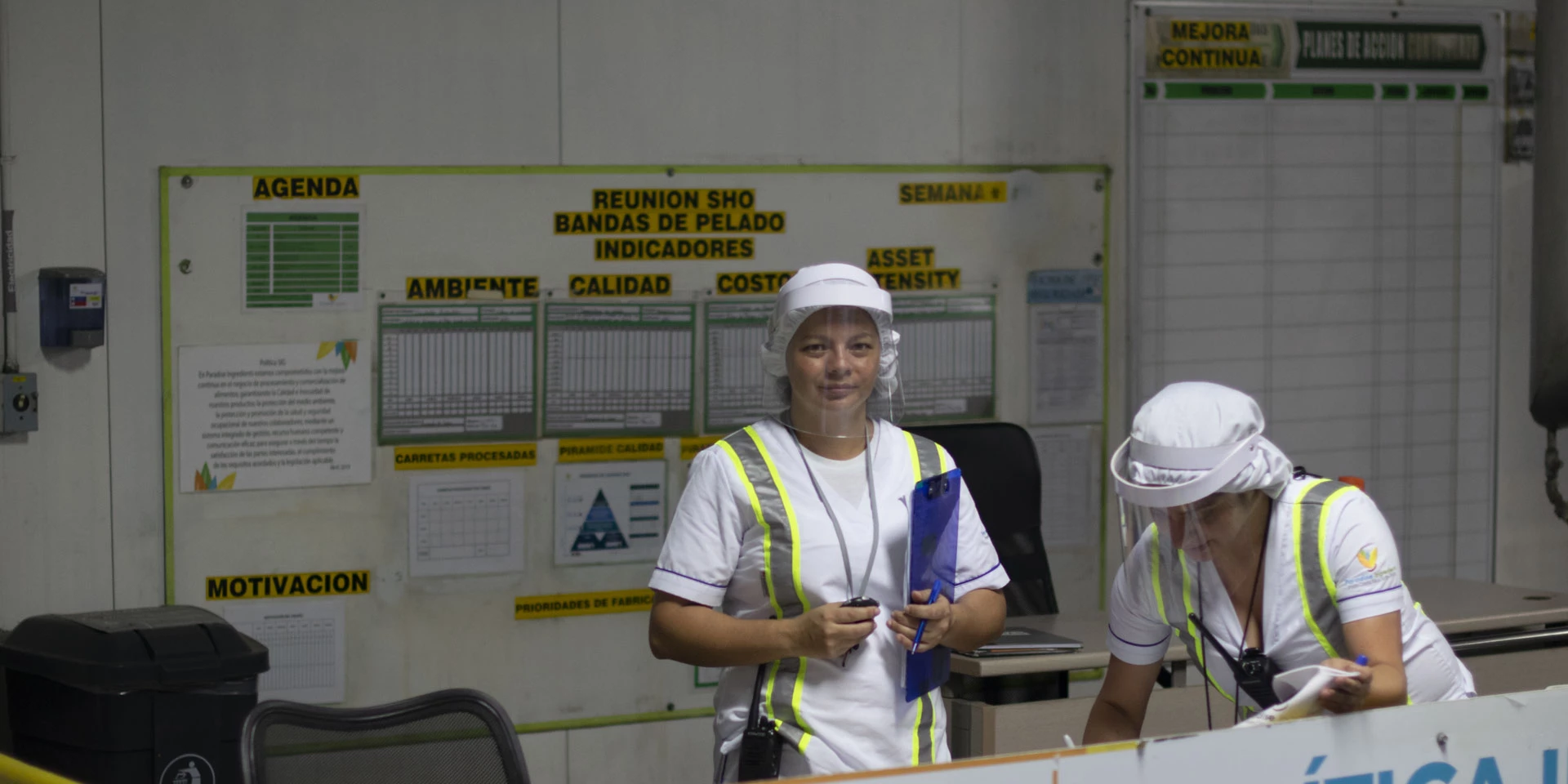By Andrew Raven
Natalia Viquez was 18 when she landed a job peeling bananas at Paradise Ingredients, a Costa Rican food processing company.
Although she was only in high school at the time, the firm made it clear she was a valuable employee, giving her technical training and rotating her through other departments to gain experience.
Today Viquez is a supervisor at Paradise Ingredients, a company where more than half of all managers are women, a rarity in Latin America.
“Seeing so many women in positions of leadership keeps me motivated,” says Viquez, who is pursuing a degree in industrial engineering. “It doesn’t matter if you’re a man or a woman. It’s your attitude and capabilities that matter.”
Viquez’s rise mirrors that of many women at Paradise Ingredients and, experts say, speaks to how a new breed of financiers are helping to promote gender diversity across Latin America.

Natalia Viquez, Supervisor at Paradise Ingredients.
Paradise Ingredients is owned by the Central American Small and Medium Enterprise Investment Fund (CASEIF), a private equity investment vehicle and IFC client. Its mandate is to drive the growth of smaller businesses across Latin America—and it is doing that in part by focusing on hiring, training and promoting women.
“It is essential for private equity funds in emerging markets to get actively involved in promoting good governance practices,” says Andrea Onate, a senior investment officer with IFC. “Successful funds, like CASEIF, are bringing world-class standards, including in gender diversity, to the companies they invest in, which is good for businesses and good for the region at large.”
Across much of Latin America and the Caribbean, women often struggle to join—and stay in—the workforce. In 2019, 52 percent of women worked outside the home, compared with 75 percent of men. Because of social norms and family responsibilities, many women who do work often find themselves in low-paying, part-time jobs. There are fears COVID-19 could affect many of those perilous positions.
CASEIF funds, which have invested in 33 businesses since 2000, have made hiring, retaining and promoting women a pillar of their strategy in Latin America, says investment director Hugo Chaves. Paradise Ingredients, for example, offers women free healthcare at the company clinic and provides school supplies to single mothers.

Hugo Chaves, Investment Director at CASEIF and CEO of Paradise Ingredients.
“We understand that for women to fulfill professional goals, they need to know and feel that their families are being taking care of,” says Chaves.
During two decades of investing in Latin America, he says he’s seen gender-balanced companies routinely outperform those dominated by men.
“It has been proven that those diverse teams make better choices for the benefit of the whole business,” says Chaves.
Based on the latest EMPEA Global report, private equity funds make $800 billion in investments annually, but just 13 percent of that money reaches emerging markets, such as those in Central America. Even less finds its way into the hands of smaller businesses, 41 percent of which have no access to credit. Experts say this happens because many banks view smaller businesses as risky borrowers, hence subject to a higher cost of borrowing, and such businesses usually lack fixed collateral or track records, among other reasons.
IFC plays an important role investing in smaller businesses through private equity funds. Jennifer McLeod Petrini, a senior investment officer, says that during the during fiscal year 2020, IFC invested a total of $120 million in private equity and venture capital funds to support companies in Latin America. This month, IFC approved a $15 million investment in a new fund from CASEIF that targets businesses in Central America. IFC’s private equity work is designed to not only support gender equality but also supercharge the growth of small and medium enterprises, which are the backbone of most economies in the region.
“In order for Latin America to recover from the devastation of COVID-19, it needs healthy, growth-oriented smaller businesses,” says McLeod Petrini. “Private equity funds, with their capital and their expertise, can help create those rising stars.”
Since 2000, businesses under CASEIF’s guidance have created more than 10,000 jobs, with more than 40 percent going to women. Among those hires was Tannia Leiva, who oversees the manufacturing process at Paradise Ingredients.

Tannia Leiva, Production Manager at Paradise Ingredients, and Hugo Chaves, Investment Director at CASEIF and CEO of Paradise Ingredients.
She says sexism is still common in Costa Rica’s manufacturing sector. Suppliers have tried to bypass her in favor of male colleagues, with some telling her they didn’t feel “comfortable” taking orders from a woman.
That, she says, makes the gender-related work being done at Paradise even more important.
“Here, people respect you for your capabilities. We are a big company and we are setting the standard.”
Published in February 2021
